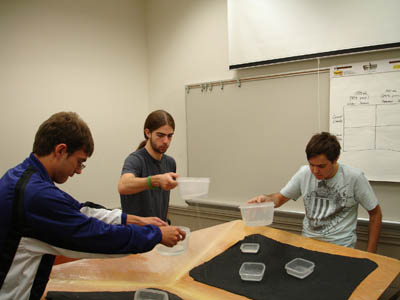What Do You NOAA?

During this summer of unseasonably cool weather in Western Washington, the dire predictions of global warming are not always at the forefront of our minds. However, after an intense week of study, the DO-IT Scholars in the NOAA Climate Change workshop can tell you just how important it is that we continue to study climate change and make everyday efforts to reduce our negative impact on the environment.
The Scholars jumped right into the workshop, learning a lesson from the people of Easter Island who destroyed their own society by using up all of their natural resources. Having set the tone for the importance of preserving the environment and the catastrophic effects that humans can have on it, Kevin Bernadt of the Environmental Protection Agency expanded on the causes and possible effects of climate change. With their new font of environmental knowledge, the Scholars investigated the process of taking scientific fact and using it to inform and create public policy. The following day, several UW graduate students presented the effects of climate change in the Northwest, and the Scholars happily flooded the classroom during a watershed demonstration showing how much more devastating floods can be when the water from melted snow packs and glaciers is added to usual amounts of rainfall. Thursday was the final day of class, and the Scholars took a trip to the NOAA regional headquarters where they saw the main weather floor, played with instruments used on research cruises, and learned how to read weather maps.
It was an intense week, but everyone survived. It wouldn't be surprising if, in a few years, we see these DO-IT Scholars in the field developing efficient alternative energy resources, in congress pushing for even tougher environmental protection laws, or on TV giving us our seven-day forecast.